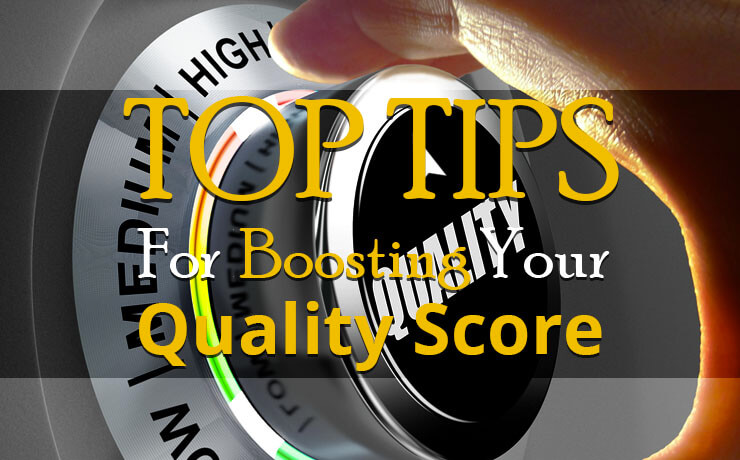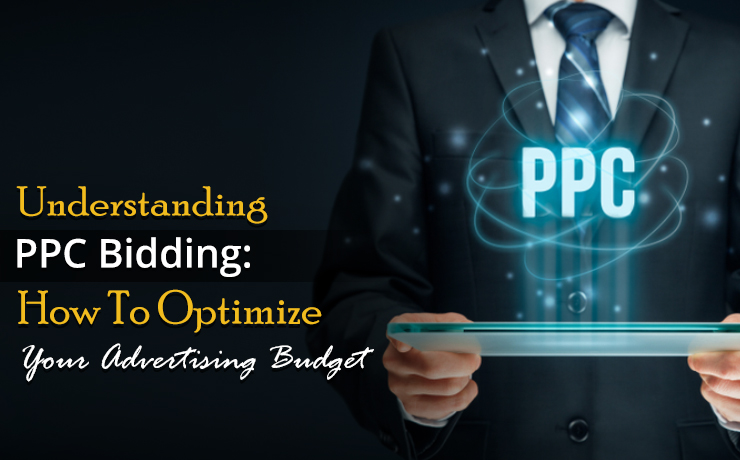Top Tips For Boosting Your Quality Score

Chad Faith
Director of Content

What is the Quality Score (QS)? Simply put, it is a metric used by leading PPC platforms like Bing Ads, Google AdWords, and more, to determine the eligibility of a PPC ad being shown in search result pages, the position of your ad, and finally the cost that you need to pay for securing that ad position. The great thing about achieving high QS is that you pay less per click in relation to others bidding on the same keyword. Let’s find out how you can boost your Quality Scores when managing PPC ad campaigns:
Tip One: Do Keyword Research
Active PPC advertisers are constantly on the lookout for new and valuable keywords to bid on. As keywords are closely related to audience targeting, it’s essential that you bid on the right keywords as they can have a major impact on the performance of your PPC campaigns. Before you kick-off a PPC campaign or while managing one, always remember to do keyword research beforehand.
Tip Two: Improve Clickthrough Rates
When it comes to assigning Quality Scores, expected clickthrough rates are always taken into consideration. In addition, keywords that have higher clickthrough rates tend to carry a stronger Quality Score. That’s why improving the CTRs of keywords remain a key area of focus when optimizing quality scores.
Before you can decide whether to widen targeting to broad match, you should target your keywords appropriately by bidding first on the right phrases or exact keywords. You can do so by using broad match modifiers – this is great because it prevents your ads from getting activated by search queries that are considered unqualified.
If you already have strong keyword targeting practices in place, i.e., strong keyword lists, the next thing to focus on is PPC ad copy writing.
Tip Three: Improve Landing Page
When you need to optimize the Quality Score of your web pages, it is pertinent that you adhere to the correct practices used for enhancing PPC landing page user experiences. For starters, your ad copy text and keywords should be the first thing that visitors see upon accessing your landing page. Your content should be concise, engaging and useful for the visitor. As long as your landing pages fulfill the needs of your target audience, ensuring they get what they are searching for when they first land on your site, you are on the right track. For example, finding the hotline to call your sales team, complete a lead form, or complete a purchase. Keep testing to determine what’s best for your visitors.
Tip Four: Ensure Relevance in Keywords, Ad Copies, and Landing Pages
You need to determine whether your ad copy aligns with the content on your landing page as well as ensure all keywords used are relevant to their respective ad copy. Don’t forget to ensure the keywords you’re bidding on also relate closely to their corresponding ads. This way you ensure that your ads direct visitors to a landing page experience that accurately relates to their initial search query. Today, AdWords is a leading platform that values a high degree of relevancy between your landing pages, ad copies, and keywords. By meeting all the requirements, you can improve your Quality Score and even conversion rate.
Tip Five: Create an Organized Account Structure
Strong Quality Scores are often achieved when a systematic and well-organized account structure exists. You need to ensure that all your ad campaigns and groups are arranged into a tightly-knit theme of keywords as they are needed to form a foundation for strong QS.
The process of QS optimization doesn’t always have to be daunting. Oftentimes, only small changes are needed and they have the potential to bring major improvements to account performance and more. Although QS can make it easier for you to evaluate the overall health and relevancy of your PPC account, they should not be utilized as a standalone key performance indicator.
 Free
Consultation
Free
Consultation Free
Google Ads Audit
Free
Google Ads Audit







